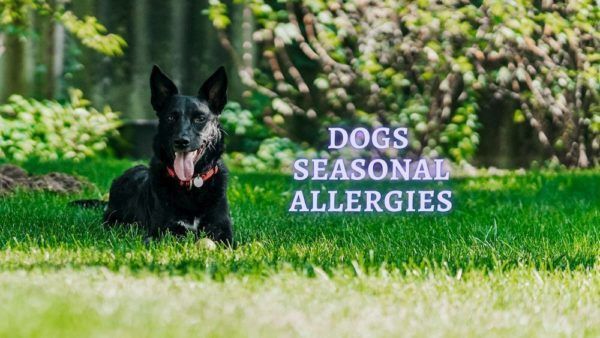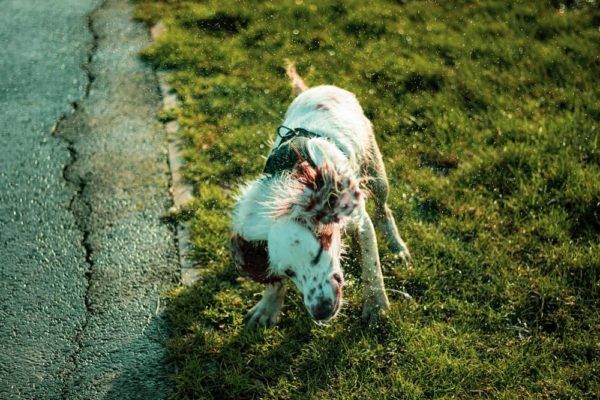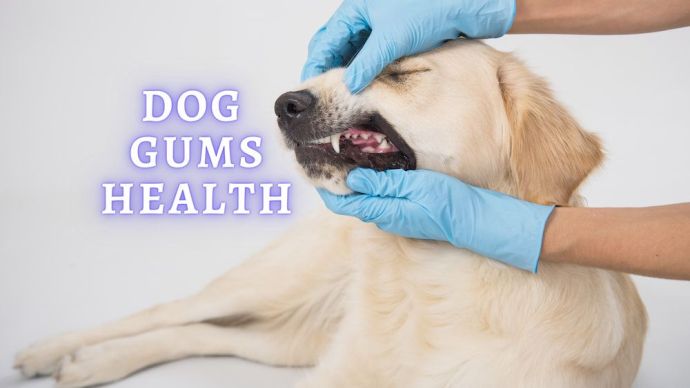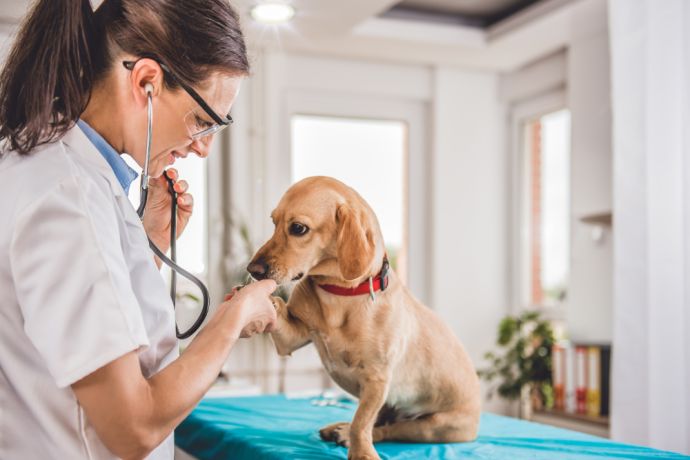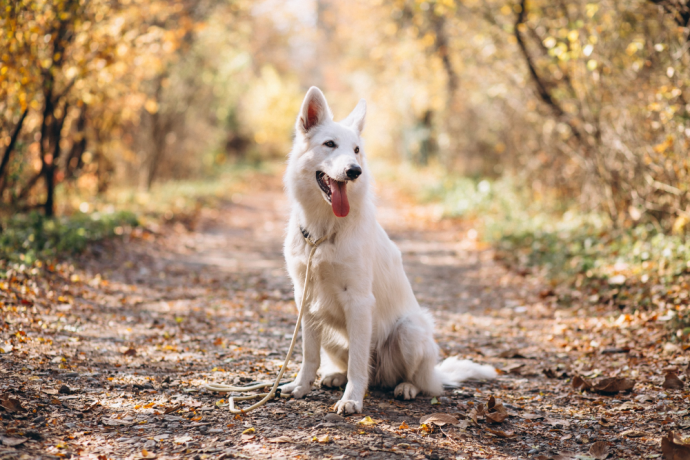Dogs Seasonal Allergies: Causes, Symptoms, Treatment, and Prevention
Written by:
Author: Dr. Edele Grey
Dr. Edele Grey is a veterinary surgeon with seven years of experience. She professionally works mostly with horses but has treated pets of all sizes including terrapins, llamas, and others. Dr. Grey graduated with honors from the University College Dublin, Ireland, has completed further education in Equine Sports Medicine. In her free time, she enjoys writing about pet ownership and educating people about veterinary care of animals and preventing disease.
View all 10 articlesLearn about our editorial process and veterinary review board.
Viewed: 333
Updated on: 06/15/2021
The first thing that springs to mind when we think of allergies in pooches is probably itchy, reddened skin, and your pup is constantly chewing and licking their body to find relief. Just like people, many dogs suffer from seasonal allergies. The primary indicators are skin conditions but aren’t the only signs we see. Allergies can manifest in the respiratory system, ears, and eyes too. Here we’re going to give a rundown on seasonal allergies in your pooch and how to minimize their impact on your pup’s life.
What causes Seasonal Allergy in Dog?
Seasonal allergies in pups are similar to humans. These are immune reactions to environmental allergens that your dog either breathes in or comes into direct contact with them, such as grass or pollens. This doesn’t occur in all pups nor with all possible allergens as the reactions are caused only by compounds to which the pet is sensitive.
Some pepper immune systems are hypersensitive to environmental allergens such as pollen, grasses, mites, flies, and sometimes even dust and dander. Allergies are the physical manifestation of your pup’s interaction with something to which they are sensitive. Each time your pet is exposed to the allergen, their immune system becomes increasingly reactive to this allergen. The immune response following exposure is then over-reactive causing more and more inflammation and irritation to the pet. Some pollens are only in the environment for a few weeks each year, while some mites or even fleas can be problematic all year round. Here we will focus primarily on pollens, trees, grasses allergies as these are seasonal.
READ MORE: Best Dog Food for Skin Allergies
Signs of Allergies in Dogs
Every dog can have a different reaction to an allergen with itchy, red skin being one of the most commonly seen signs. There are many others too, which are listed below.
Itchy skin:
- licking and biting paws
- constantly scratching or rubbing their muzzle
- red, sore skin
- dragging their body along the ground
- open ulcerated areas of skin due to excessive licking
- discolored hair coats particularly in white and light-colored dogs
Recurring ear infections:
- smelly discharge
- head shaking
- rubbing ears
- crying when petted
- unwilling to allow stroking of their ears
- Puffy, red, weepy eyes
- Sneezing, coughing, wheezing
- Clear discharge from the nostrils
- Tired or intermittent lethargy
How can these Allergies be Diagnosed?
The signs of allergies are often readily diagnosed by your vet based on the seasonality of signs, recurrence of particular problems (eg. ear infections), your pet’s history, a physical examination followed by some laboratory tests, and monitoring their response to treatments. Some pups may need specialist care with a dermatologist to perform skin tests.
Any laboratory tests performed will depend on the signs your pup is exhibiting. If your pup is suffering with an ear or skin infection, your vet will advise swabbing and taking samples to ascertain the best antimicrobial treatment to give your pet. Blood tests can also be performed to test for sensitivity to a variety of allergens and can be done by your veterinary surgeon. For many pets this can be sufficient to initiate treatment.
In some cases, intra-dermal skin tests are needed which are performed by a board-certified veterinary dermatologist. These tests are tiny doses of an allergen injected into the dermal layer of skin and monitor any reactions. Intra-dermal tests are more accurate than blood tests but are not always necessary and are usually performed to formulate an immunotherapy schedule.
How to Treat Dog Allergies?
There is a wide variety of treatments available to doggies with seasonal allergies ranging from shampoos and nutritional changes through to anti-inflammatory medications and immunotherapy.
1. Shampoo treatments
Bathing with oatmeal or hypoallergenic shampoos helps to soothe irritated skin while simultaneously washing out any pollen or other allergens on your pet’s coat. Many of these can be purchased over-the-counter though some require a prescription. Ensure you use lukewarm water that’s not very hot as this can cause further irritation. If your pup’s skin is infected or very irritated (to the point where they are traumatizing themselves) then it’s best to use a medicated shampoo available on prescription.
2. Allergy medication for Dogs
There are a variety of anti-inflammatory and immunomodulatory medications available to help ease the suffering of pooches with allergies. Some of these treatments are reactive, which means they reduce the inflammation your fur-friends immune system produces in response to an allergen. These include corticosteroids and antihistamines and have been available for decades.
Another product that has been on the market for a long time is Atopica® which is cyclosporine which has been preferable for pups who can’t receive steroids however it can take a month to see a positive response.
Some newer products have become available which are both short and long-acting. Oclacitinib is one such drug, marketed under the brand name of Apoquel® is a tablet that is taken daily by pets with allergic skin disease. There is a loading period where a higher dose is needed to achieve optimal results.
This proactive medication is designed to block specific signals caused by exposure to an allergen thus preventing the itch response. Your veterinarian will advise you about what is the best product for your pet’s particular problem.
3. Immunotherapy
A product called Cytopoint® has recently become available; a longer-acting injection is given by your veterinarian at designated intervals. This product is a canonized monoclonal antibody which is fast-acting and may last for up to 8 weeks. This is often a good treatment for pets who are unable to take oral medications or are also on long term medication for other conditions.
Pups with a specific antigen allergy that’s diagnosed following an intradermal skin allergy test may have an allergy serum injection formulated for their specific needs. These are weekly shots that aim to microdose your pet with the antigen to desensitize your pup’s immune system to minimize their reaction when exposed in the future. These injections have varying success with up to 75% seeing some degree of reduction in the severity of their allergic responses. A proportion of these pets will still need intermittent or reduced doses of corticosteroid or other medications.
4. Natural options
There are a huge number of natural treatments lauded for pets suffering from seasonal allergies but you should always chat with your veterinarian before trying any of these as some are toxic and it is possible to overdose your pet with some.
5. Nutritional options
A number of nutritional companies produce commercial diets aimed at improving your pup’s skin health. These diets are aimed to maximize your pet’s skin health to reduce allergic reactions to environmental antigens. There have also been reports that vitamin D and supplementary fatty acids may help to improve a dog’s response to corticosteroid medication. There are a huge number of supplements available, so ensure you’re using one specifically formulated for dogs and you should discuss this with your veterinarian before making these changes to your pet’s diet.
READ MORE: Puppy Eats Everything
Can Allergies be Cured?
In a word, no. Unfortunately, allergies are invariably incurable, however there are many options to manage the reactions your pup suffers. Immunotherapy aims to reduce the immune response to an allergen and possibly eliminate them, however this is rare.
How can I prevent my pup from suffering from these Allergies?
There are some things you can do daily to reduce your pup’s exposure to these allergens and thus reduce their suffering.
Checking the pollen count and planning walks at times when the pollen count tends to be lower can help. Pollen counts tend to be lower in the early morning and evening. If you know what allergens (pollen, grass, tree) your pup is allergic to, you can also plan a route to prevent their encountering these antigens. If that’s not possible, keep your pooch on a leash when near grassy areas will help reduce their exposure since just one little roll or short-run through grass can cause days of pain for your pup.
Weekly baths, daily brushing and wiping your pet’s paws and muzzle after every walk can help to remove pollens from their fur. Rinsed sensitive baby wipes or special pup ones are ideal for this. Alongside grooming, regular laundering of your pup’s bedding will help to reduce the environmental load of antigens. If your pup is allergic to dust mites and dander, weekly vacuuming will significantly reduce your pup’s exposure to these.
READ MORE: How to raise a Puppy?
Conclusion
It can be frustrating to see your fur baby suffering with seasonal allergies that you can’t seem to get under control. It’s important to remember that not every pet responds favorably to all treatments and medications may have side effects for your pooch; there’s a degree of trial and error when treating pet’s with allergies. Seasonal allergies will likely affect your pup throughout their life, but proactive and conscientious preventative measures coupled with judicious use of medications can allow your pet to live a normal, carefree lifestyle.
 Dog Veterinary Tips Tear Stains on Dogs: How to get rid of tear stains on dogs? (Vet Advice)
Dog Veterinary Tips Tear Stains on Dogs: How to get rid of tear stains on dogs? (Vet Advice) - 80
- 0
 Dog Veterinary Tips My Dog’s nose is Dry and Cracked: Causes and Things to Help
Dog Veterinary Tips My Dog’s nose is Dry and Cracked: Causes and Things to Help - 308
- 0
 Puppy Care How Much Water Should A Puppy Drink? Vet Advice On Puppies Daily Water Intake
Puppy Care How Much Water Should A Puppy Drink? Vet Advice On Puppies Daily Water Intake - 373
- 0
 Dog Veterinary Tips Why is my Dog throwing up: Causes and Preventing (Veterinary Advice)
Dog Veterinary Tips Why is my Dog throwing up: Causes and Preventing (Veterinary Advice) - 21800
- 5
 Dog Care My Dog Keeps Scratching His Mouth: Reasons Why Your Dog Scratching Face
Dog Care My Dog Keeps Scratching His Mouth: Reasons Why Your Dog Scratching Face - 17168
- 1
 Dog Care Why Is My Dog Bleeding From Its Butt? Causes and treatment of rectal bleeding in the dog
Dog Care Why Is My Dog Bleeding From Its Butt? Causes and treatment of rectal bleeding in the dog - 15114
- 0









